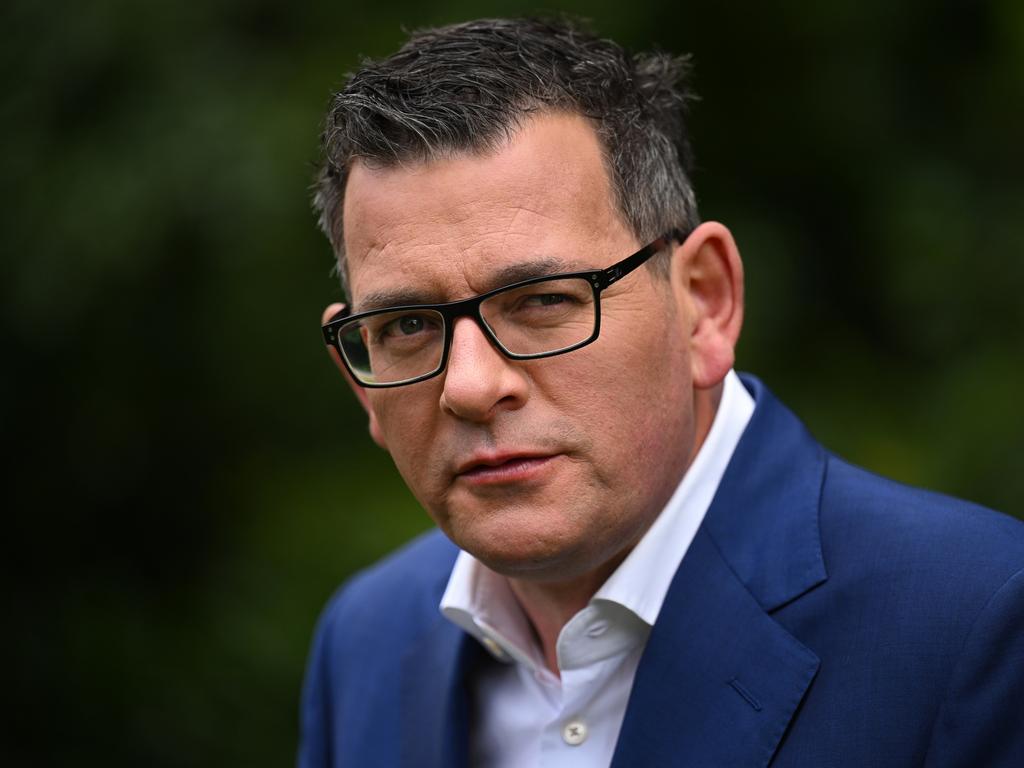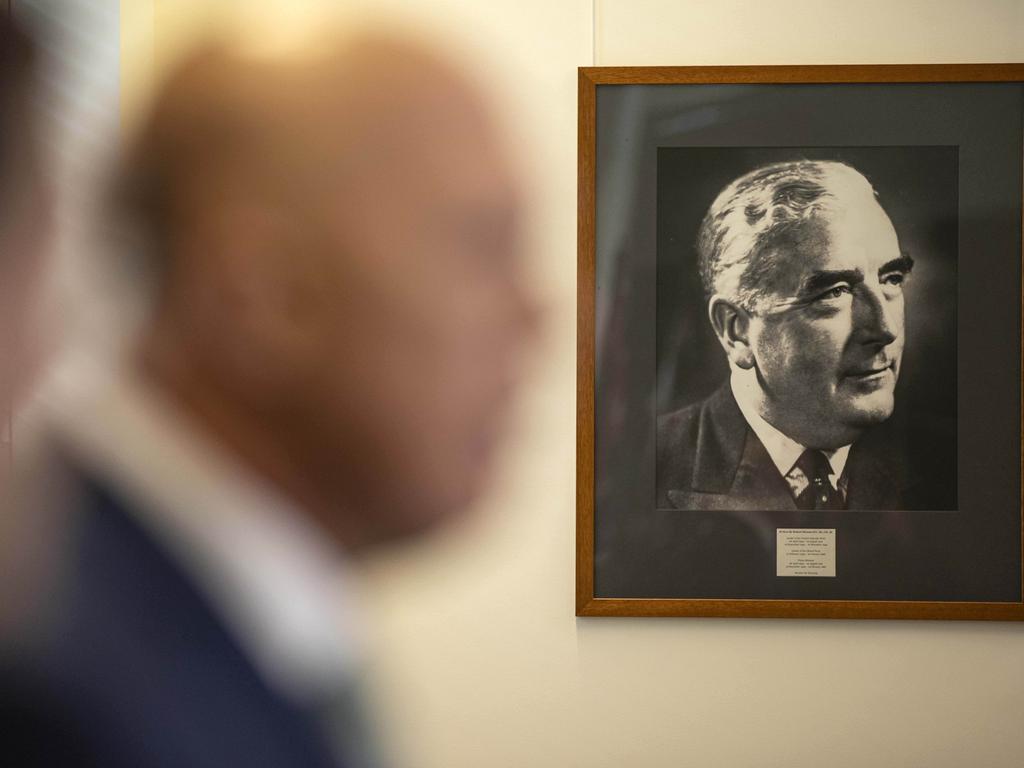State Libs risk a fall through gender gap into irrelevance
The man tasked (cursed?) with leading SA’s shattered Liberals used the authority of his office to demand a woman be preselected in the blue-chip seat of Bragg. It did not end well.
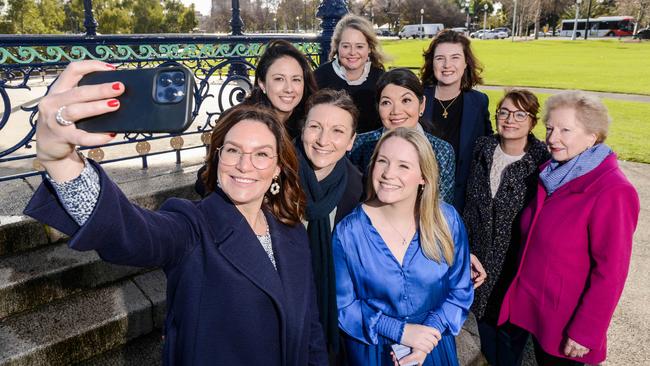
Earlier this year, the man who had just been honoured if not cursed with leading the shattered South Australian Liberals used the authority of his office to demand a woman be preselected in the blue-chip seat of Bragg.
Veteran minister and moderate faction supremo Vickie Chapman had just made the snap decision to retire in the miserable aftermath of the party’s drubbing at the March 19 poll.
As a 20-year parliamentarian who championed women’s issues and achieved several firsts – Chapman was SA’s first female attorney-general and deputy premier – new leader David Speirs made it clear he strongly believed a female candidate should be endorsed as Chapman’s successor.
As leader, Speirs voted for a female candidate and urged the local branch to do the same.
“There’s too much hypocrisy in politics and for me to be saying I’d really like to see more women elected and preselected and then to vote for a man wouldn’t have been the right thing to do,” he said.
What happened next? Bragg preselectors cast 113 votes for Jack Batty, a Scotch College-educated lawyer who had just moved back to Adelaide’s eastern suburbs from London, with fellow lawyer Melissa Jones receiving just 33 votes and businesswoman Cara Miller a paltry 12.
It was a similar headache for Liberal Premier Dominic Perrottet in NSW last week, where having made it clear he wanted to see Natalie Ward preselected in the seat of Davidson, the local branch opted for Matt Cross.
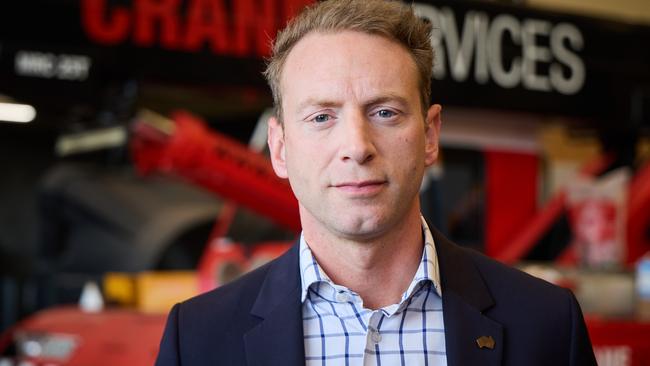
Up against Labor with its blunt but effective instrument of affirmative action, the lesson from Bragg and Davidson was that the attempted imposition of a preferred candidate on gender grounds is a red rag to local branches.
The gender gap is worse in SA, where the Liberals were all but wiped off the map at this year’s poll, with the new Labor government led by Peter Malinauskas having a record number of female MPs.
Labor saw seven new women elected on March 19, meaning 14 of its 27 MPs are female, the first time women have had an absolute majority within a government in SA history.
In contrast, the swing against the Libs was so vast it left the parliamentary party with just three lower house female MPs.
Of the nine seats the Liberals lost to Labor, three were held by women, and another was held by a bloke who got into strife for grabbing a female MP on the backside at a parliamentary Christmas Party.
Genderwise, results don’t come much worse than that, with the party’s female numbers falling from three to two in the lower house when Batty was victorious at the Bragg by-election on July 2 and replaced Chapman.
What happened in Bragg was a microcosm of the gender challenge facing the Liberals in SA and also nationally.
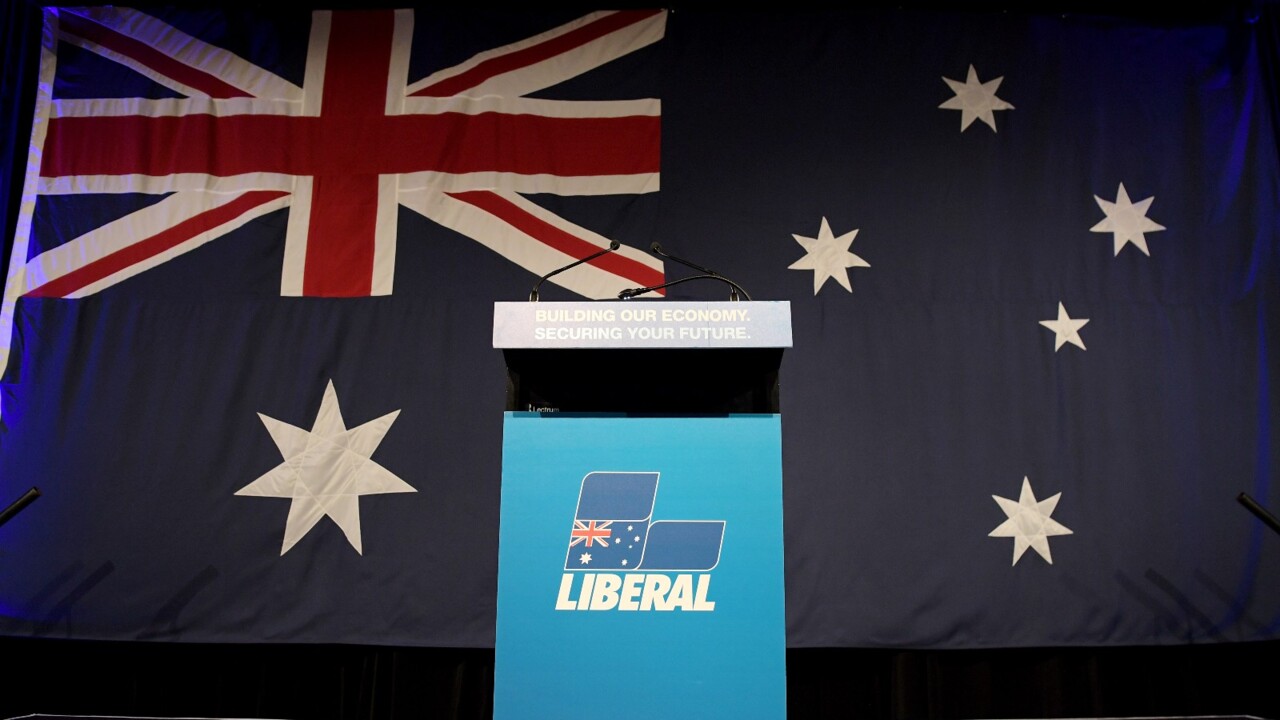
Despite the best efforts of Speirs – or perhaps also because of them – the actions of the local Bragg preselectors demonstrated that many Liberals regard the party not just as a meritocracy, but also take a dim view of non-locals telling them how they should vote.
The problem is that at a time when conservatives are suffering massively from the drift of female voters – best evidenced by the demise of Scott Morrison – natural attrition and the turnover of personnel are proving sluggish mechanisms to get women into winnable seats.
In the wake of the Bragg result, Speirs and Liberal HQ created an advisory panel comprising several prominent women to work through the party’s gender issues. The panel includes former SA Liberal leader Isobel Redmond, new senator Kerrynne Liddle, Howard government parliamentary secretary Trish Worth and all five female lower and upper house MPs.
The panel is due to report to Speirs and the party this month, but sources say it is not expected to recommend the adoption of an Emily’s List-style quota system.
However, it is expected that some key male-held seats might be earmarked for talented local women, with the mooted departure of former premier Steven Marshall and former industry minister David Pisoni this term giving the party a chance to address the issue.
In the eyes of some, anything less than quotas will not be enough. One panel member who has been agitating for such a rule is Chelsey Potter, who has been openly critical of the party for its failure to do so.
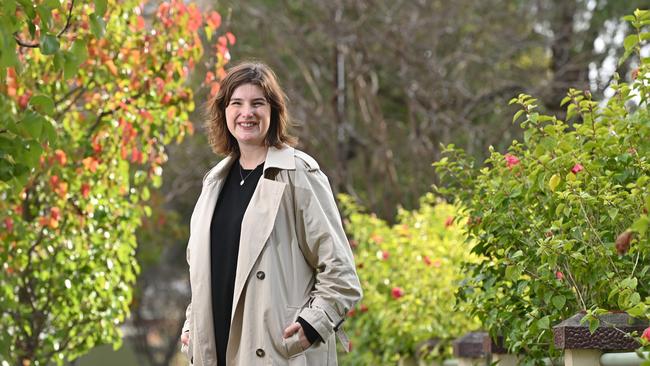
Potter’s inclusion on the panel surprised some in the party given that at one stage she was threatening to run as a teal candidate against Batty in Bragg.
However, Speirs has decided it is better to keep her inside the tent than out, despite her open advocacy for an issue many Liberals still regard as an offence to a merit-based process.
Potter has been vocal on social media throughout the advisory panel process, tweeting last week that there were too many blokes in the party who were acting out of self-interest and self-preservation.
“I’m very unclear on why we let senior Liberal men, who have clearly benefited from the current system, determine how we address this issue,” she tweeted.
“We’ve tried meaningless targets before. Quotas work. We risk charging towards political irrelevance at full speed.”
Potter told Inquirer she believed the debate needed to be had in the open and that the party was clearly suffering electorally from a lack of female representation.
“The thing I find quite strange is that we have quotas within the Coalition agreement to ensure there is a balance of country and city MPs,” she said.
“You could even argue that the Senate system is framed around a form of quotas where we need equal numbers based on which states people represent, as opposed to how talented they actually are.
“Quotas would be a show of good faith with women in the community.”
But Worth says the challenges facing the party need to be seen in a much simpler political context.
Worth was part of the golden era for SA political representation during the Howard years, with cabinet ministers Alexander Downer, Robert Hill and Ian McLachlan serving alongside several female MPs including Amanda Vanstone, Chris Gallus, Jeannie Ferris, Trish Draper, Susan Jeanes and Worth herself holding the key seat of Adelaide.
“Politics ultimately is about winning elections,” Worth told Inquirer. “If we had performed better than we did at the state election you probably wouldn’t be talking to me now.
“We had two great women elected in Ashton Hurn and Penny Pratt who won preselection ahead of male candidates. If we had held on to other seats, several of which were held by women, the gender issue would be a non-issue.
“Clearly we need to address the issue. But there’s no substitute for just winning.”



